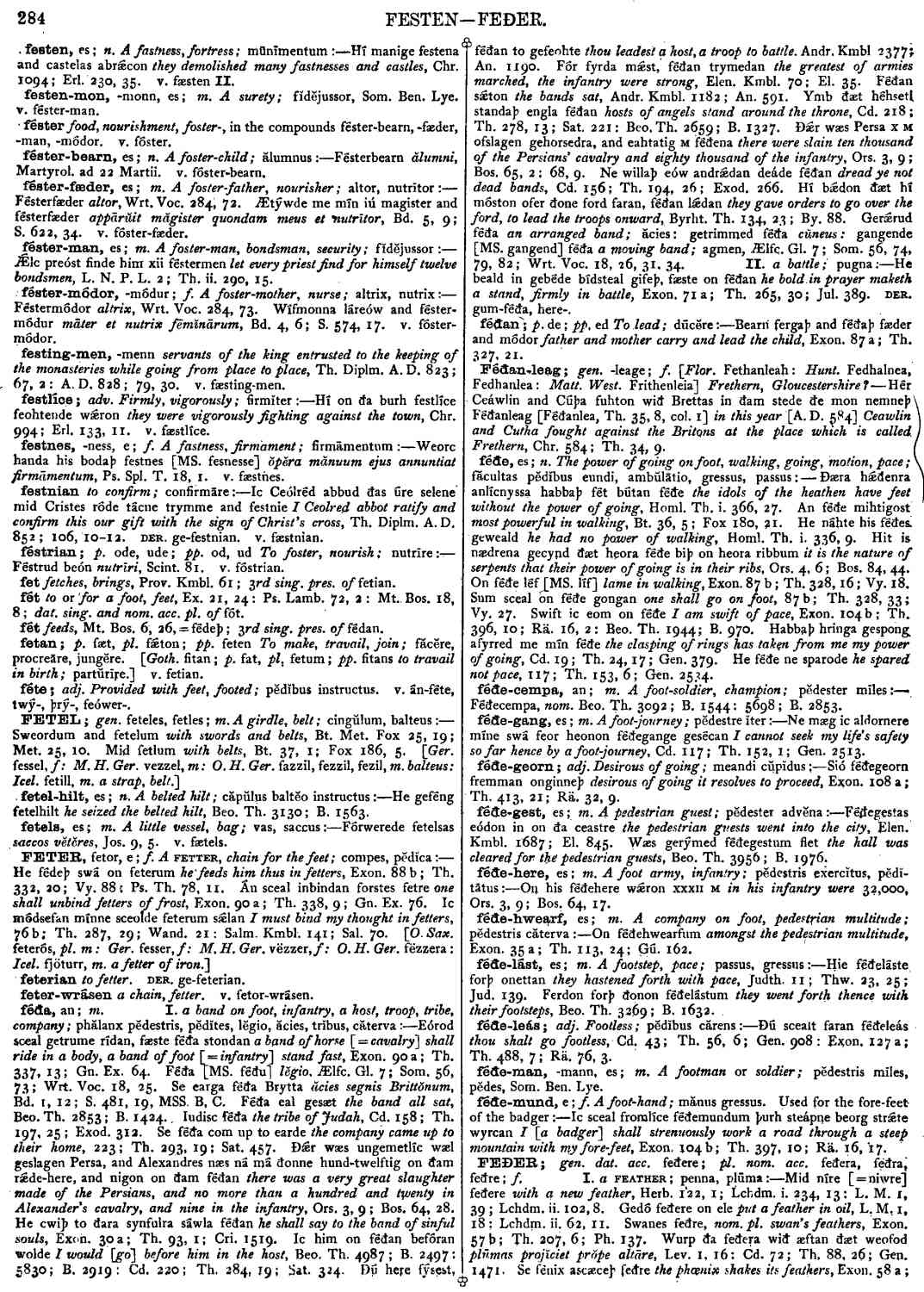féðe
- noun [ neuter ]
-
Ðæra hǽðenra anlícnyssa habbaþ fét bútan féðe
the idols of the heathen have feet without the power of going,
- Homl. Th. i. 366, 27.
-
An féðe mihtigost
most powerful in walking,
- Bt. 36, 5 ;
- Fox 180, 21.
-
He náhte his féðes geweald
he had no power of waiting,
- Homl. Th. i. 336, 9.
-
Hit is nædrena gecynd ðæt heora féðe biþ on heora ribbum
it is the nature of serpents that their power of going is in their ribs,
- Ors. 4, 6 ;
- Bos. 84, 44.
-
On féðe léf [MS. líf]
lame in walking,
- Exon. 87b ;
- Th. 328, 16 ;
- Vy. 18.
-
Sum sceal on féðe gongan
one shall go on foot,
- 87b ;
- Th. 328, 33 ;
- Vy. 27.
-
Swift ic eom on féðe
I am swift of pace,
- Exon. 104b ;
- Th. 396, 10 ;
- Rä. 16, 2: Beo. Th. 1944 ;
- B. 970.
-
Habbaþ hringa gespong afyrred me mín féðe
the clasping of rings has taken from me my power of going,
- Cd. 19 ;
- Th. 24, 17 ;
- Gen. 379.
-
He féðe ne sparode
he spared not pace,
- 117 ;
- Th. 153, 6 ;
- Gen. 2534.
Bosworth, Joseph. “féðe.” In An Anglo-Saxon Dictionary Online, edited by Thomas Northcote Toller, Christ Sean, and Ondřej Tichy. Prague: Faculty of Arts, Charles University, 2014. https://bosworthtoller.com/10601.
Checked: 1